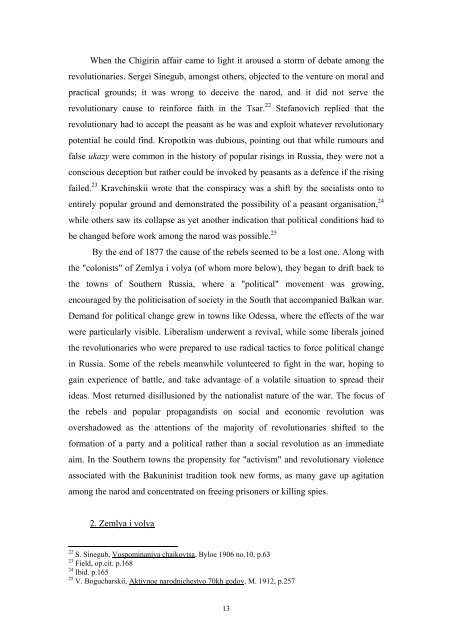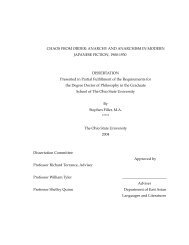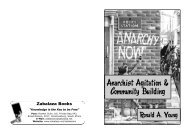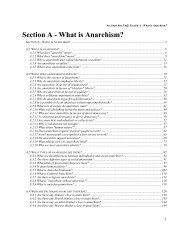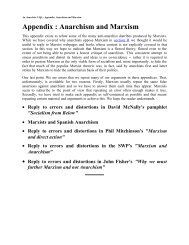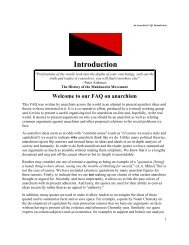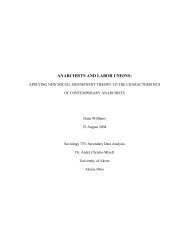Graham Gamblin - Infoshop.org
Graham Gamblin - Infoshop.org
Graham Gamblin - Infoshop.org
Create successful ePaper yourself
Turn your PDF publications into a flip-book with our unique Google optimized e-Paper software.
When the Chigirin affair came to light it aroused a storm of debate among the<br />
revolutionaries. Sergei Sinegub, amongst others, objected to the venture on moral and<br />
practical grounds; it was wrong to deceive the narod, and it did not serve the<br />
revolutionary cause to reinforce faith in the Tsar. 22 Stefanovich replied that the<br />
revolutionary had to accept the peasant as he was and exploit whatever revolutionary<br />
potential he could find. Kropotkin was dubious, pointing out that while rumours and<br />
false ukazy were common in the history of popular risings in Russia, they were not a<br />
conscious deception but rather could be invoked by peasants as a defence if the rising<br />
failed. 23 Kravchinskii wrote that the conspiracy was a shift by the socialists onto to<br />
entirely popular ground and demonstrated the possibility of a peasant <strong>org</strong>anisation, 24<br />
while others saw its collapse as yet another indication that political conditions had to<br />
be changed before work among the narod was possible. 25<br />
By the end of 1877 the cause of the rebels seemed to be a lost one. Along with<br />
the "colonists" of Zemlya i volya (of whom more below), they began to drift back to<br />
the towns of Southern Russia, where a "political" movement was growing,<br />
encouraged by the politicisation of society in the South that accompanied Balkan war.<br />
Demand for political change grew in towns like Odessa, where the effects of the war<br />
were particularly visible. Liberalism underwent a revival, while some liberals joined<br />
the revolutionaries who were prepared to use radical tactics to force political change<br />
in Russia. Some of the rebels meanwhile volunteered to fight in the war, hoping to<br />
gain experience of battle, and take advantage of a volatile situation to spread their<br />
ideas. Most returned disillusioned by the nationalist nature of the war. The focus of<br />
the rebels and popular propagandists on social and economic revolution was<br />
overshadowed as the attentions of the majority of revolutionaries shifted to the<br />
formation of a party and a political rather than a social revolution as an immediate<br />
aim. In the Southern towns the propensity for "activism" and revolutionary violence<br />
associated with the Bakuninist tradition took new forms, as many gave up agitation<br />
among the narod and concentrated on freeing prisoners or killing spies.<br />
2. Zemlya i volya<br />
22 S. Sinegub, Vospominaniya chaikovtsa, Byloe 1906 no.10, p.63<br />
23 Field, op.cit. p.168<br />
24 Ibid. p.165<br />
25 V. Bogucharskii, Aktivnoe narodnichestvo 70kh godov, M. 1912, p.257<br />
13


